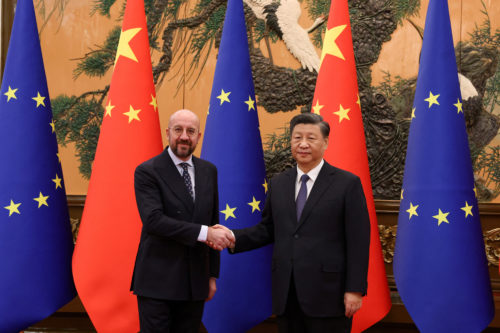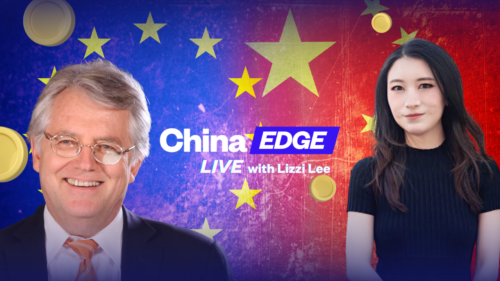Will China and the EU clinch an investment deal soon?
The EU and China are reportedly very near to signing an investment deal that has been in negotiations since early 2014. However, hesitancy from the U.S., Poland, and the European Parliament present obstacles.

Exactly a month ago, U.S. President-elect Joe Biden selected key nominees for foreign policy posts, signaling a future American foreign policy that emphasizes working with allies to compete with and pressure China.
- Earlier this week, Jake Sullivan, Biden’s nominee for national security adviser, tweeted to reiterate that message: “The Biden-Harris administration would welcome early consultations with our European partners on our common concerns about China’s economic practices.”
- If that sounds like a bland statement, that’s because it is. Sullivan is not legally allowed to conduct foreign policy until he is part of the Biden-Harris administration, which won’t formally exist until January 20.
But Sullivan was responding to news that the EU and China are very near — China’s foreign ministry says that “talks are in the final stage” — to signing an investment agreement that has been in discussions since early 2014. The implication is that Sullivan would rather the EU wait until the Biden team can sit down with European officials for major change in Chinese market access to be negotiated.
What’s in the prospective agreement?
EU officials consider the agreement to be a “relatively limited” deal with a narrow focus, the New York Times reports, and it has “strong support among European companies operating in China because it would lift requirements that they operate through joint ventures with Chinese partners and share sensitive technology.”
The Chinese banking market would also be further opened to European firms under the agreement.
Is the agreement likely to happen?
The fate of the deal is uncertain. Sullivan’s signal of hesitancy is just one of several obstacles to the agreement, the NYT says.
- The word agreement is one area of disagreement. European officials prefer that term, but China reportedly prefers the term treaty.
- Labor standards are one of the “main sticking points” in the talks, as Beijing has not defined minimum wage or health and safety conditions.
- Poland wants “more consultations and transparency bringing our transatlantic allies on board,” according to that country’s foreign minister, the SCMP reports.
- A European Parliament vote would be “required to ratify the deal, and some [lawmakers] are unlikely to back it,” per the SCMP. Last week, the parliament adopted a resolution condemning Chinese human rights abuses in Xinjiang.
- Nuclear energy: China wants to invest in European power plants and “use Chinese technology in this area,” but this sector is sensitive in Europe, according to the German magazine WirtschaftsWoche, Reuters says.
On the other hand, German and French leaders Angela Merkel and Emmanuel Macron are backing the deal.
An open letter from a collection of European China scholars cautioned against a hasty conclusion of the deal. While Germany is “especially keen on securing its interests in the Chinese electric vehicles and battery sector,” the scholars wrote, that victory would occur “in the context of a China that is reinforcing its self-reliance industrial policies and at home and mercantilist expansion abroad.”
More on the deal, and U.S.-EU-China relations:
- What an EU-China investment treaty would mean for companies / FT (paywall)
- An EU-China investment deal is near—but is it ‘worth having?’ / Atlantic Council
- Focus US-EU cooperation on handling China’s technological rise / Macro Polo
-
European tech accuses U.S. of using sanctions to shut it out of China / FT (paywall)
“So far, U.S. companies have been given licences to supply Huawei, while European suppliers cannot,” said one unnamed executive.





